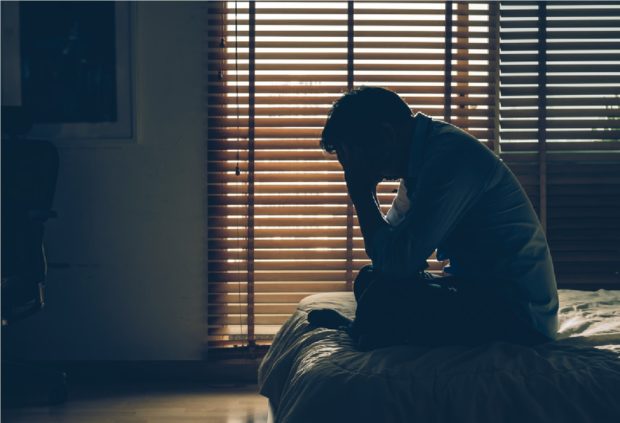
How to ‘build back better’ health habits after pandemic year
PTI, May 28, 2021, 3:28 PM IST

East Lansing (US): The US is in far different shape today than it was last Memorial Day, and many Americans are, too.
According to a recent survey by the American Psychological Association, undesired changes in weight driven by pandemic stress are widespread: 42 per cent of adults reported gaining weight, with a median weight gain of 15 pounds, while 18 per cent reported undesired weight loss. About 66 per cent of people reported changes in their sleep habits, and 23 per cent of respondents reported an increase in alcohol use.
In addition, many people have delayed routine medical and dental maintenance: Think mammograms, childhood immunisations and teeth cleaning. There’s also a mental health pandemic underway in parallel with increased substance use, which must also be addressed.
I am a physician and associate professor of medicine at Michigan State University’s College of Human Medicine. In my role as the director of wellness, resiliency and vulnerable populations, I hear the concerns of faculty and staff regarding returning to on-site work.
The switch that got flipped in March 2020 to social distancing, remote schooling, mask-wearing and long-distance work – or no work – is switching back almost as abruptly. With little preparation time, many people are faced with wanting to be in top form for reentry. Resuming – or beginning – healthier habits is a wonderful goal. Trying to get back to normal too quickly, however, may be hard on joints and hearts. Here is a guide to help you get back in shape without hurting yourself.
Attitude matters
It is vital to begin with acceptance of your current state while you plan and implement changes. It may be necessary to hold two seemingly contradictory truths at once – a core tenet of dialectical behavioural therapy, or DBT. A classic example of DBT is when a therapist tells a client, “I love you exactly the way you are, and I’m here to help you change.” The statements are simultaneously in opposition to each other and true.
Doing this in terms of pandemic-driven changes involves three steps:
Take note of the current reality, such as, “I am up 10 pounds,” “I am drinking more than before the pandemic,” or “I’m not getting enough exercise anymore,” but without negative self-judgment.
Make realistic, measurable goals for change: “I want to lose a pound in four weeks,” “I want to climb a flight of stairs without becoming breathless,” or “I will drink alcohol only when out with friends.”
Create a plan to achieve these goals.
Also, wanting to take good care of oneself, rather than wanting to look or be a certain way, is an important focus. A little self-knowledge goes a long way here. People who tend to go “all in,” rather than doing things gradually, need to be sure their plans are safe by seeking professional guidance from a reliable source, such as getting weight loss advice from a family doctor rather than from people or companies that a New York Times opinion writer recently described as “weight-loss profiteers.”
How can this process be applied to some common pandemic-driven health problems? Here are some suggestions.
Sleep
One of the most effective and “simple but not easy” ways to normalise sleep is to pay attention to one’s sleep hygiene. Good sleep hygiene includes having a distraction-free, dark, quiet place to sleep. This may require using a sleep mask, blackout curtains or a white noise machine, and having no TV in the bedroom.
Even parents of very young children who may find these steps unrealistic can make some changes to help improve sleep, such as avoiding naps, sticking to a schedule, developing a routine, and engaging in some physical activity to tire oneself out before bedtime. Having a cutoff time for caffeinated beverages, as well as avoiding late night dining and too much alcohol, also help.
If excessive snoring is a problem, or getting very sleepy and dozing off throughout the day, or any other unusual symptoms, consulting a doctor should be part of the plan.
Alcohol
There are many shades of alcohol consumption between complete abstinence and full blown alcohol use disorder. If the goal is to stop drinking alcohol entirely, it’s important to stay alert to signs of alcohol withdrawal, which can range in severity from symptoms of a mild hangover to delirium tremens (experiencing a sudden and severe state of confusion), seizures and delusions. The good news is that there are now medications in addition to behavioural and support groups that can help.
If you’re concerned, try a brief self-screening test and talk with your physician.
Physical activity
To come up with a safe exercise plan, start with an honest self-assessment. This includes looking at your current age and physical condition (particularly knees, hips, lungs, heart and balance); weight and weight changes during the pandemic; and activity levels before and during lockdown. The National Academy of Sports Medicine offers a downloadable questionnaire that can help with making this self-assessment.
Remember there are weight bearing, aerobic and stretching types of exercises. With each, begin at a level of comfort and gradually go slightly further. For example, if the goal is to start running, consider starting small, with a 30-minute routine a few days a week that involves a jog for one minute followed by walking for four minutes. Each week up the ante, such as shifting on the second week to jogging for two minutes then walking for three.
If the goal is to start walking, setting a time limit can help to achieve tangible goals: a 10-minute walk a few days the first week, 15 minutes the next week and so on, until the walk lasts 30 minutes and happens a few times a week. Then focus on increasing the pace.
Chest or arm pain, dizziness or extreme discomfort, are all signs to stop. While it’s useful to get to know what it feels like to be a little sore from working hard and how that differs from pushing it too far, it’s also a good idea to become familiar with the warning signs of a heart attack.
Whether they involve mental or physical health – while this tends to be an artificial separation – post-lockdown behaviour changes should begin with an accurate assessment of how things are, a realistic goal for what they will become, and a plan to get there. All of these should reflect care and love for one’s self and one’s body.
Have a happy – and safe – reentry!
Udayavani is now on Telegram. Click here to join our channel and stay updated with the latest news.
Top News
Related Articles More

Surgical options for Parkinson’s disease

Breast cancer to cause a million deaths a year by 2040: Lancet commission

Will to resist temptations, achieve goals more trustworthy than using apps, study finds

Govt directs e-commerce firms to remove drinks, beverages from ‘health drinks’ category

Experiencing abuse, neglect as child linked to lifelong ill-health: Study
MUST WATCH
Latest Additions

Fire erupts at industrial estate in Mumbai; no casualty

Kerala CM attacks Congress over candidature of Lal Singh

Youtuber arrested for recording video, falsely claiming he spent entire day at Bengaluru airport

No ordinary election, it’s to save Constitution, democracy: Rahul to Cong workers

No ordinary election, it’s to save Constitution, democracy: Rahul to Cong workers























